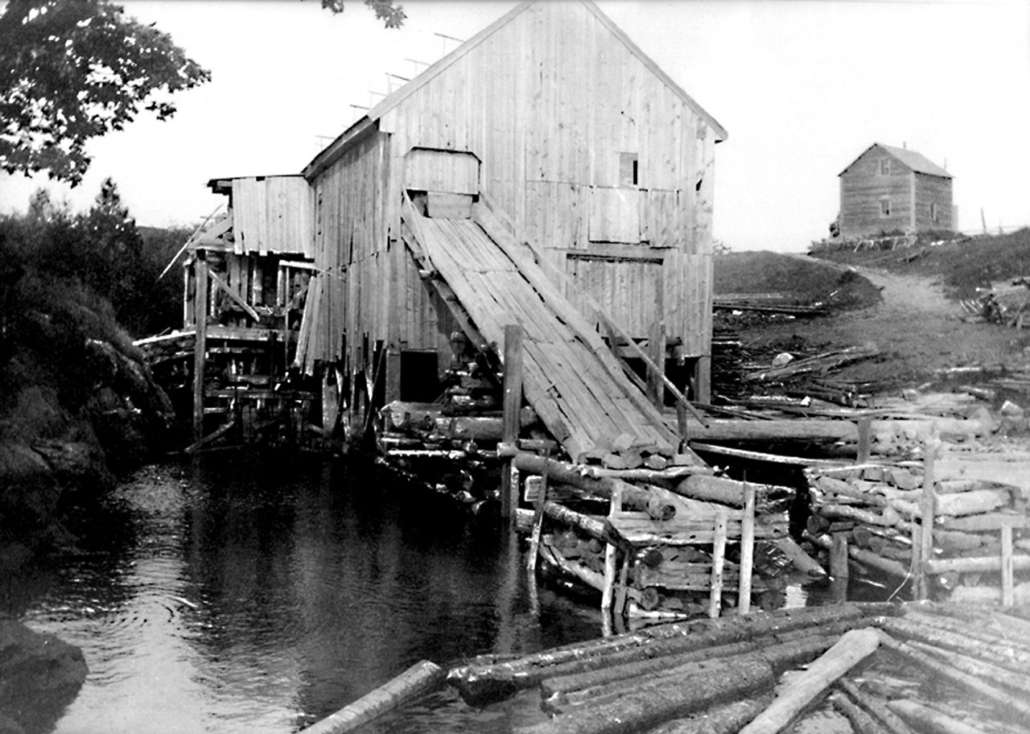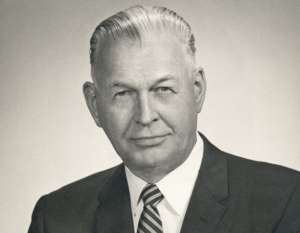LIFE ON THE PLAINS: Working for the extras
 by Roland D. Hallee
by Roland D. Hallee
Life on The Plains in the 1950s and ‘60s was pretty simple. World War II had ended a few years earlier, the Korean War was raging, but I was too young to remember that. Gen. Dwight D. Eisenhower, the “man who defeated Hitler” was elected president in 1952, and the country was going through some kind of industrial revolution.
In Waterville, the mills were cranking out products, unemployment was down, and families were growing.
Our dad worked at Hollingsworth & Whitney Paper Mill, in Winslow, and brought home a decent pay check for those days. He worked his way up to machine tender, which means he primarily ran the paper making monstrosity of a machine.
At the Sunday dinner table, when he was able to be there since he worked shift work and had to be at the mill sometime, he would go through the process of making paper. Whether it was tissue paper, bathroom tissue, or the base paper that would later be processed into wax paper, it was relayed to us. Three of the four of us would later decide we didn’t want to spend our lives in the mill. One brother, the oldest, became a chemical engineer, specializing in the pulp and paper industry.
Even though our dad provided well for our family, there were no handouts. I don’t ever recall having an “allowance”. We were provided with the necessities, and that was it. Any frills, or “wants” we had, had to be earned. And don’t think we got paid to mow the lawn or shovel snow, those were expected.
So, we went out and got paper routes. That, in itself, was a life experience. Me at the age of 12 years.
For six days a week – no paper on Sunday – we were up at 4:30 a.m., went out the front door to fetch our bundle of papers that had been left by a Morning Sentinel delivery driver. We prepared the papers for each door we would visit. Some were folded in half, some folded into thirds, and even some we “boxed” for throwing up two or more stories in apartment buildings. No need to climb three flights of stairs when you could chuck the papers up there. We had 83 customers spread throughout our neighborhood.
We would load the papers in our wagon, and venture out the door. To steal an old slogan of the U.S. Postal Service, “Neither rain, nor snow, nor sleet, nor dark of night would prevent us from our appointed rounds.” And there were days when we would rather still be in bed. On rainy days, we had to make sure the papers stayed dry, or it would affect our tips. Following snow storms, we had to trudge through mounds of snow banks, sometimes sinking up to our knees. It was always dark, because we had to complete our route by 6 a.m. We had to be ready for school by 7 a.m. School started at 8 a.m. in those days, and we walked. We couldn’t be late. And I won’t even go into the battles we had with dogs.
I remember the night Gov. Clinton Clauson died. The papers had been delivered to our house, and we were ready to go when a truck pulled up, took away the papers, and left us in a lurch. A little while later, a new bundle was delivered with the front page story. Some of our customers still didn’t understand, and we barely made it to school on time.
Oh, but in the summer time, it was a different story. It was light early, and we didn’t have to worry about school. I can remember some mornings when, following our deliveries, we would sit on the back steps, and enjoy the aroma of doughnuts and bread in the air. Probably from Bolduc’s Bakery, on Veteran Court.
Of course, delivering the papers was only part of the job. In the evenings, we had to go collect our money from the customers. That could be a challenge, especially from those who were unemployed.
Economics played a large part in our decision to give up the routes when we were about ready for high school. The paper back then was 45-cents a week. People would give us half a dollar and tell us to “keep the change.” Well, in due time, the cost of the subscription went to 47-cents, and the customers still gave us half a dollar, and said, “keep the change.” Besides, there were other opportunities about to present themselves. Going to work at the Sentinel when we turned 16 years old.
With that job, which paid 75-cents an hour, we worked from 1 – 4 a.m., six days a week, and still had to make it to school on time. During this period of working these jobs, I missed three days of school, only because my maternal grandfather had passed away.
But, the lesson was learned. Anything you want in life, you have to go work for it.
Responsible journalism is hard work!
It is also expensive!
If you enjoy reading The Town Line and the good news we bring you each week, would you consider a donation to help us continue the work we’re doing?
The Town Line is a 501(c)(3) nonprofit private foundation, and all donations are tax deductible under the Internal Revenue Service code.
To help, please visit our online donation page or mail a check payable to The Town Line, PO Box 89, South China, ME 04358. Your contribution is appreciated!




Leave a Reply
Want to join the discussion?Feel free to contribute!